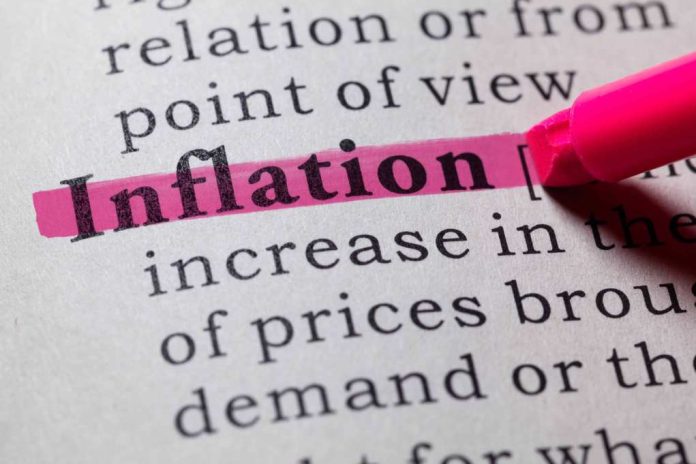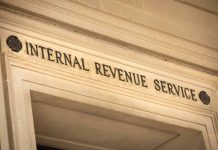
The impact of inflation rates can be observed in almost everyone’s daily life. Just this past year, it was the highest it has ever been in the last 40 years and many people might still be feeling the effects today. This is because inflation raises the prices of goods and services which in turn reduces the purchasing power that people have. On top of that, inflation lowers the value of Treasury notes, savings, and more. Besides what we just mentioned, inflation can also result in higher interest rates on loans, which means getting more money can cost people more. That is why it is important to know what you can do financially during times of inflation!
How to Deal with Inflation?
Handling your finances can be tough to deal with, especially during inflation. That is why some personal finance tips may be able to help you during these economic periods. But first, you will want to understand what inflation is!
What is Inflation?
Inflation refers to an increase in prices which results in lower purchasing power. Two main reasons cause inflation: a decrease in supply or an increase in demand. However, it’s important to note that many factors can contribute to the condition of the economy. That is why there isn’t a simple answer when determining why inflation is happening. Typically, inflation is a combination of market changes and policies!
Personal Finance Tips for Inflation
When it comes to managing your money during inflation, there are certain things you can do that can help you during this time. Some personal finance tips to consider during inflation include the following:
- Use a Budget
- Save Money When Buying Groceries
- Consider a Side Gig
Use a Budget
Proper budgeting can make a world of difference in how you manage your finances. That’s because a good budget will keep you on track with reaching your goals while ensuring you are responsible. Good budgets look at the amount of money you are bringing in each month versus the amount of money you are spending. If you want to make your budget, it’s easier than you may think!
First, start by listing the income you make each month. For example, let’s say you work 45 hours a week but make a salary of $3,500 a month (before taxes). You will want to note that you make $2,500 a month. Then you will want to look at how much you are spending each month. This includes bills like rent, groceries, utilities, etc. However, it also includes other expenses like going out to eat, buying clothes, etc. You want to keep track of all spending in your budget. So for this example, let’s say that your expenses include the following:
- Housing costs (like rent and utilities): $1,600 per month
- Car costs (car note, car insurance, and gas): $400 per month
- Groceries: $400 per month
- Extra spending (like getting food out to eat, getting your nails done, etc.): $200 per month
- Subscriptions (like streaming platforms, gym memberships, etc.): $100 per month
The above expenses would total $2,700 per month. If you are making $3,500 a month, that means $800 is remaining that will go towards taxes, can be spent, or can be saved. Knowing this information can help you plan out goals like paying off debt, saving for an emergency cushion, and more.
Plus, when dealing with inflation, you will be able to see what you usually spend and how much inflation may be impacting that. For example, let’s say that you usually spend $400 on groceries but with inflation, you see that you are paying $450 per month for the same items. This helps you keep track of that difference while accounting for that with your current financial situation!
Save Money When Buying Groceries
Speaking of groceries, this is a great area in life where you can save money. There are a couple of ways you can save when it comes to the cost of groceries. You can:
- Use coupons
- Plan your groceries out
- Properly store your groceries
- Pick the right grocery store
Use Coupons
Every little bit of savings help, especially during periods of inflation. Using coupons can help shoppers save on their groceries. Those that use coupons reportedly save 7% on their groceries a week.
Plan Your Groceries Out
When you are hungry and you go grocery shopping, it’s easy to buy items that you don’t need. It can help a lot to plan your groceries out. The best way to do it will vary depending on the person. One way that you could do it is by planning your meals for the week. This will help you know what groceries you need and gives you a chance to think about what you need versus what you want.
Properly Store Your Groceries
Even if you buy the necessary amount of groceries, you run the risk of having to throw them out if they aren’t properly stored. For example, you need to refrigerate your milk. If you leave your milk out, it will spoil. According to the law, milk that is Grade A must be stored at a temperature that is at least 45°F. If your milk spoils, then you will need to throw it away. That is essentially throwing away money because you didn’t use a product that you needed, which means you either have to go without it or buy another!
Pick the Right Grocery Store
Not every grocery store has the same prices. That is why it is important to check out local stores in your area to see which offers the best bang for your buck. For example, eggs at one grocery store may cost $2.06 while eggs at another grocery store may cost $2.28. The difference may seem small, but it adds up when you consider the entire cost of your groceries!
Consider a Side Gig
During times of inflation, you could see your purchasing power decrease. That means that you could focus on increasing your income which can help you better deal with tough times. There are a variety of side gig opportunities out there that can help you earn more money all while working within your current schedule. Jobs that offer flexibility include:
- Food delivery opportunities
- Grocery delivery opportunities
- Dog walking
There are even more opportunities that are not on the list we mentioned above. You just need to do some research to find what’s out there!
Overall
Inflation can be tough to handle when it comes to personal finances, especially if you are low-income. However, there are personal finance tips to consider that may be able to make a world of difference during inflation. Besides these tips, you may benefit from getting in touch with a financial professional that can provide expert guidance for your specific situation. Inflation doesn’t have to feel like the end of the world for your money management!




























